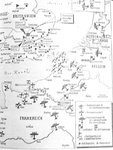Vassili Zaitzev
Master Sergeant
So my teacher is going to talk about the Battle of Britain for a short while in my WWII class. I asked to help present and he said no problem. I'm thinking about making a powerpoint. What major points should I address?

